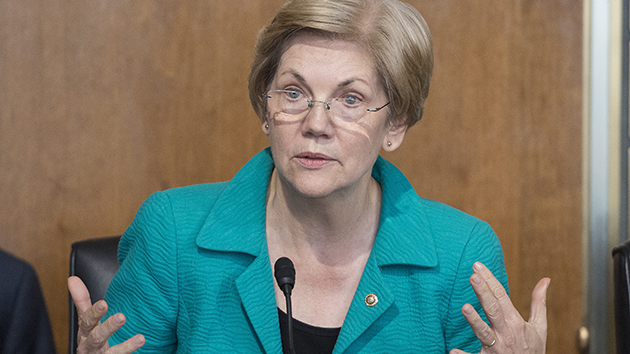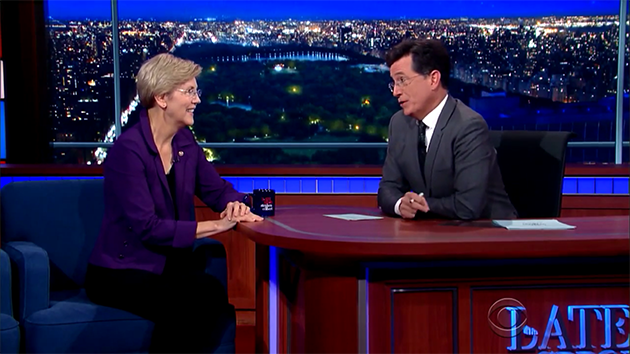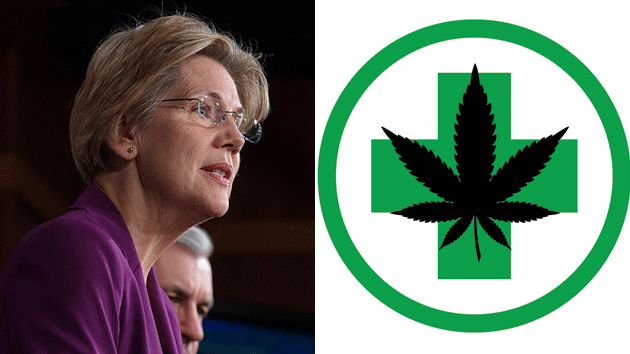
Susan Walsh/AP
Elizabeth Warren wants to give seniors the same pay raise enjoyed by CEOs—and to raise taxes on some executive pay in the process. The liberal senator from Massachusetts is introducing a bill on Thursday to boost Social Security payments for 2016 with a one-time bump in benefits.
Social Security payments—for both retirees and people receiving disability insurance—are pegged to inflation, with the government calculating a cost-of-living adjustment, the percentage by which payments increase each year. But in recent years, with the economy still puttering only slowly upward following the recession, inflation has stalled, which has left Social Security recipients with no or minimal annual increases. 2016 is set to be only the third year since 1975 when Social Security won’t get any cost-of-living increase, joining 2010 and 2011.
Warren’s bill, dubbed the SAVE Act (short for Seniors and Veterans Emergency Benefits Act), would offer a one-time 3.9 percent increase. Why such a specific percentage? Warren points to a study showing that pay for CEOs at the 350 largest companies increased by 3.9 percent in 2015. Warren’s bill would pay for this one-time benefit hike by eliminating a corporate tax exemption for performance pay packages—which would also extend the solvency of the entire Social Security program.
As Mother Jones‘s Pema Levy documented earlier this year, Warren has focused on Social Security since coming to the Senate—not just defending the current program against cuts, but fighting to expand benefits. Her proposal comes at a time when much of the political debate over entitlements has pulled in the opposite direction. New House Speaker Paul Ryan, whose earlier proposals would have privatized parts of Social Security, is promising to explore changes to entitlements, and the Republican presidential candidates have debated lowering Social Security benefits. But Warren may be rallying Democrats to her side. Earlier this year, during votes on amendments to a budget, Warren introduced legislation to expand benefits that failed to pass but won the backing of all but two Democratic senators.












